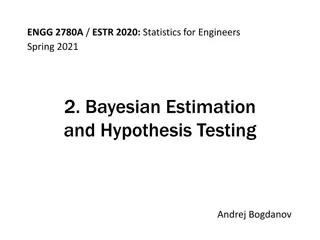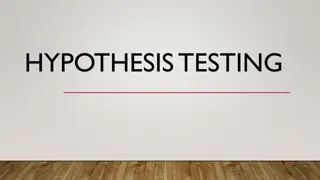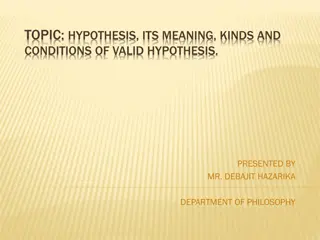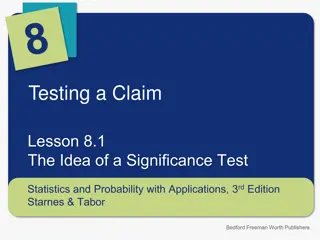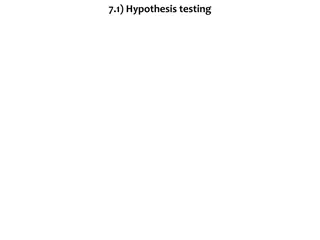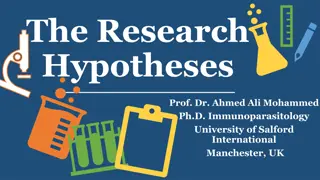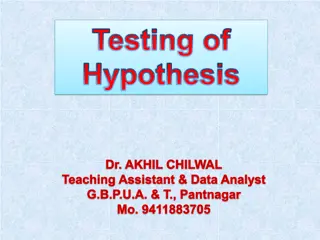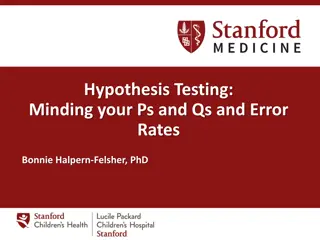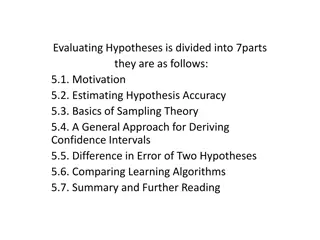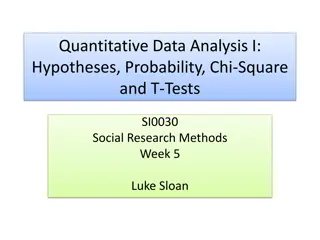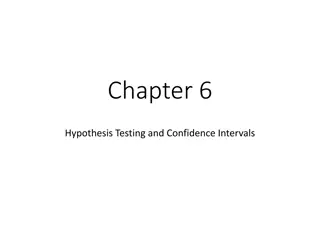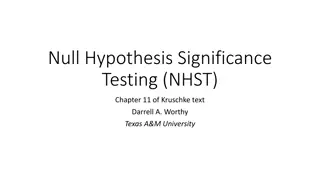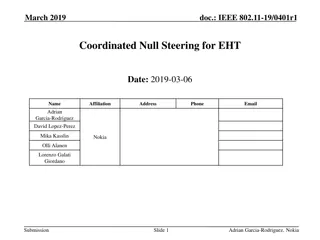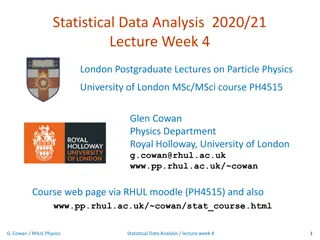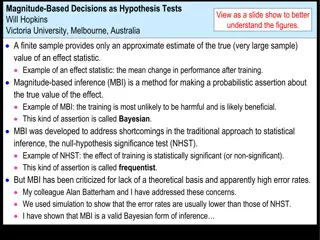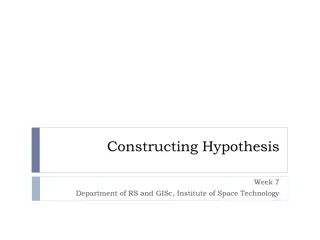Understanding Hypothesis Testing and Null vs. Alternative Hypotheses
A hypothesis is a prediction about a study's outcome, guiding research direction. Stating hypotheses forces deep thinking and making specific predictions but may introduce bias. Null hypothesis (H0) states no effect, while alternative hypothesis (Ha) claims an effect in the population. Researchers evaluate evidence to support or reject these claims, crucial in statistical testing for making inferences about populations.
Download Presentation

Please find below an Image/Link to download the presentation.
The content on the website is provided AS IS for your information and personal use only. It may not be sold, licensed, or shared on other websites without obtaining consent from the author. Download presentation by click this link. If you encounter any issues during the download, it is possible that the publisher has removed the file from their server.
E N D
Presentation Transcript
What is a Hypothesis? A hypothesis is a prediction regarding the possible outcome of a study Advantages of stating hypotheses include: Forces us to think more deeply and specifically about the possible outcomes of the study Enables us to make specific predictions based on prior evidence or theoretical argument Helps to clarify whether we are or aren t investigating a relationship Disadvantages of stating hypotheses include: May lead to a bias on the part of the researcher In some studies, it would be presumptuous to predict what findings would be Focusing on the hypothesis could prevent the researcher from seeing other phenomena that might be important to the study
Null vs Alternative The null and alternative hypothesis are two competing claims that researchers weigh evidence for and against using a statistical test: Null hypothesis (H0): There s no effect in the population. Alternative hypothesis (Haor H1): There s an effect in the population.
Null vs Alternative cont.. The null and alternative are always claims about the population. That s because the goal of hypothesis testing is to make inferences about a population based on a sample. Often, we infer whether there s an effect in the population by looking at differences between groups or relationships between variables in the sample. It s critical for your research to write strong hypothesis. You can use a statistical test to decide whether the evidence favors the null or alternative hypothesis. Each type of statistical test comes with a specific way of phrasing the null and alternative hypothesis. However, the hypotheses can also be phrased in a general way that applies to any test.
Null Hypothesis The null hypothesis is the claim that there s no effect in the population. If the sample provides enough evidence against the claim that there s no effect in the population (p ), then we can reject the null hypothesis. Otherwise, we fail to reject the null hypothesis. Null hypotheses often include phrases such as no effect, no difference, or no relationship.
Alternative Hypothesis The alternative hypothesis (Ha) claims that there s an effect in the population. Alternative hypothesis is the same as your research hypothesis. In other words, it s the claim that you expect, or hope will be true. If you reject the null hypothesis, you can say that the alternative hypothesis is supported. On the other hand, if you fail to reject the null hypothesis, then you can say that the alternative hypothesis is not supported. Never say that you ve proven or disproven a hypothesis. Alternative hypotheses often include phrases such as an effect, a difference, or a relationship.



